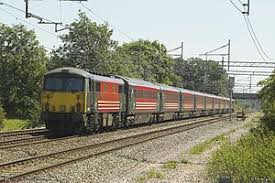The Williams report was commissioned after a catastrophically botched timetable change last summer led to nearly half the trains in northern England being delayed or cancelled. The incident exemplified how the railways, which made much progress after being privatised in the early 1990s, have gone off-track. Last year delays and cancellations reached their worst level in nearly a decade. At the same time passenger numbers fell by 1.4%, the first dip since privatisation. Amid all this, passengers are paying more. Ticket prices have risen twice as fast as wages since 2010.

When Britain broke up and sold British Rail, the state-run monopoly, it hoped to spur competition and cut costs. With this aim it embarked on a radical experiment, tried before only in Sweden, of separating the management of the tracks from that of the trains. Politicians feared that chaos could ensue, and some politically sensitive lines could close, if the system went from rigid state monopoly to free-market free for-all overnight. So they introduced a system of franchises, in which companies could bid for the right to operate specified services, to ensure continuity and allow for the subsidising of loss-making services.
译文由可可原创,仅供学习交流使用,未经许可请勿转载。











